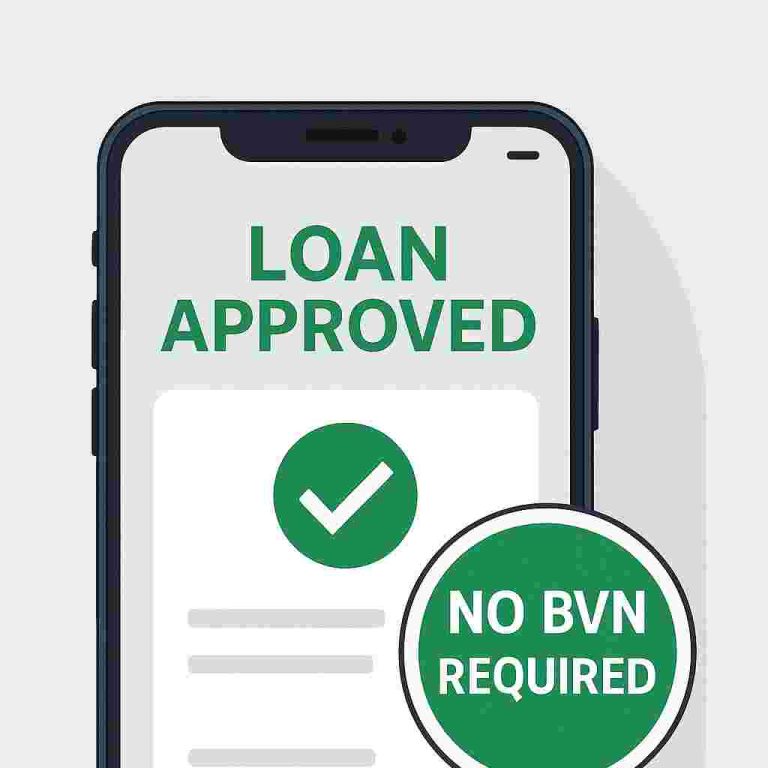Learn how to identify and avoid investment scams in Nigeria. Protect your money from Ponzi schemes, fake platforms, and fraudulent investment opportunities.
In January 2025, Chioma, a successful Lagos-based entrepreneur, received a WhatsApp message from her former university classmate about an “exclusive investment opportunity” promising 25% monthly returns.
The platform looked professional, complete with testimonials and fake regulatory certifications. Within three weeks, she had invested ₦2.5 million of her business funds.
By March, the platform had vanished, taking her money and dreams with it. She wasn’t alone—over 15,000 Nigerians lost more than ₦50 billion to similar schemes in the first quarter of 2025 alone.
Investment scams have become increasingly sophisticated, targeting educated professionals and exploiting Nigeria’s economic challenges.
This comprehensive guide will teach you exactly what to avoid and how to protect yourself from becoming another victim.
The Devastating Reality of Investment Scams in Nigeria
Nigeria ranks among the top countries globally for investment fraud, with the Economic and Financial Crimes Commission (EFCC) reporting a 300% increase in investment-related fraud cases between 2023 and 2025. The sophisticated nature of modern scams makes them particularly dangerous for unsuspecting investors.
Why Investment Scams Thrive in Nigeria?
Economic Pressures: High inflation and currency devaluation drive people to seek high returns
Limited Financial Education: Many Nigerians lack basic investment knowledge
Social Media Proliferation: Scammers exploit social platforms for credibility Weak Regulatory Enforcement: Limited resources for monitoring and prosecution Cultural Factors: Trust in personal recommendations over due diligence
The Most Common Investment Scams to Avoid in 2025
1. Ponzi Schemes: The Classic Trap
How They Work: Ponzi schemes pay existing investors using money from new investors, creating an illusion of profitability. They inevitably collapse when new investor recruitment slows.
Recent Nigerian Examples:
- MBA Forex Trading: Promised 50% monthly returns, collapsed after collecting over ₦5 billion
- Chinmark Group: Agricultural investment scheme that defrauded thousands of investors
- Mavrodi Mundial Movement (MMM): Despite previous collapse, variants still target new victims
Red Flags to Watch:
- Unusually high guaranteed returns (anything above 20% annually should raise suspicion)
- Emphasis on recruiting new investors
- Vague explanations about how profits are generated
- Pressure to reinvest profits rather than withdraw
- Testimonials from early investors showing large profits
Real Victim Story: “I invested ₦500,000 in what seemed like a legitimate agricultural scheme. They showed me their ‘farms’ and introduced me to other investors making money. After six months, when I tried to withdraw, they kept giving excuses. Eventually, they stopped responding to calls entirely.” – Anonymous victim, Lagos
2. Fake Cryptocurrency Platforms
The Scam Mechanics: Fraudsters create fake cryptocurrency exchanges or investment platforms promising guaranteed returns on crypto investments.
Common Variants:
- Fake Mining Operations: Promise returns from non-existent mining equipment
- Fraudulent ICOs: Sell worthless tokens disguised as legitimate cryptocurrencies
- Fake Trading Platforms: Show fake profits while stealing deposits
- Pyramid Crypto Schemes: Combine cryptocurrency with multi-level marketing
Warning Signs:
- Promises of guaranteed crypto returns
- Pressure to recruit others for bonuses
- Platforms not registered with relevant authorities
- Inability to withdraw funds or cryptocurrencies
- Testimonials that seem too good to be true
Case Study – BitConnect Nigeria: This platform promised daily returns of 1-2% through their “trading bot.” After collecting millions in Bitcoin, the platform shut down overnight, leaving investors with worthless tokens.
3. Forex Trading Scams
How They Operate: Scammers pose as professional forex traders offering to trade on behalf of clients or teach “guaranteed” trading strategies.
Common Forex Scam Types:
- Signal Services: Paid services promising accurate trading signals
- Managed Accounts: Scammers request access to trade your account
- Trading Academies: Expensive courses teaching “secret” strategies
- Fake Brokers: Unregulated platforms that manipulate trades
- Copy Trading Scams: Fake traders with fabricated track records
Red Flags:
- Guaranteed profits in forex trading
- High-pressure sales tactics
- Unregulated brokers
- Testimonials showing unrealistic gains
- Requests for account access or passwords
Protection Strategy: Only use brokers regulated by recognized authorities like the Securities and Exchange Commission (SEC) in Nigeria or international equivalents like FCA, ASIC, or CySEC.

4. Real Estate Investment Frauds
Sophisticated Real Estate Scams:
- Land Banking Schemes: Selling worthless or non-existent land plots
- Property Flipping Frauds: Promising quick profits from property renovations
- Fake Development Projects: Collecting money for non-existent construction projects
- Rental Income Guarantees: Promising unrealistic rental returns
Case Example: A company in Abuja collected over ₦3 billion promising investors ownership of luxury apartments with guaranteed 15% annual rental income. Investigation revealed the properties didn’t exist, and the company had no valid development permits.
Due Diligence for Real Estate:
- Verify property ownership documents
- Check development permits and approvals
- Visit actual property locations
- Confirm company registration and track record
- Get independent property valuations
5. Agricultural Investment Schemes
How Agricultural Scams Work: These schemes promise high returns from farming activities, livestock, or agricultural commodities.
Common Types:
- Snail Farming Schemes: Promise unrealistic returns from snail cultivation
- Poultry Investment Frauds: Fake chicken or egg production investments
- Crop Farming Scams: Non-existent rice, cassava, or other crop farms
- Livestock Investment Frauds: Fake cattle, goat, or fish farming operations
Red Flags:
- Returns significantly higher than traditional agriculture
- No physical farm visits allowed
- Vague explanations about farming operations
- Pressure to reinvest profits
- No proper business registration or permits
6. Binary Options and Online Trading Frauds
The Binary Options Trap: These platforms allow betting on asset price movements, often rigged against investors.
How They Scam:
- Price manipulation to ensure customer losses
- Withdrawal restrictions and endless verification requirements
- Fake profits shown to encourage larger deposits
- Unregulated platforms with no investor protection
Regulatory Warning: Many countries have banned binary options trading due to high fraud rates. Avoid any platform offering binary options trading.
7. Multi-Level Marketing (MLM) Investment Hybrids
Dangerous MLM Characteristics:
- Focus on recruitment over product sales
- Emphasis on investment returns rather than product value
- Complex compensation structures
- Pressure to purchase large inventory quantities
- Income claims based on recruitment success
Recent Nigerian MLM Scams:
- Twinkas Network: Combined social media with investment promises
- Ultimate Cycler: Promised returns through cycling positions
- Crowd1: Online networking scheme targeting African markets
Advanced Scam Tactics to Recognize
1. Social Proof Manipulation
Fake Testimonials:
- Professional-looking video testimonials from actors
- Fabricated success stories with stolen photos
- Fake social media accounts showing luxurious lifestyles
- Purchased followers and engagement on social platforms
How to Verify:
- Reverse image search on testimonial photos
- Check social media profiles for authenticity
- Look for consistent posting history
- Verify contact information for testimonial providers
2. False Authority and Credentials
Fake Credentials:
- Purchased or fabricated professional certifications
- False claims about regulatory approvals
- Fake partnerships with legitimate companies
- Fraudulent academic qualifications
Verification Methods:
- Check credential authenticity with issuing organizations
- Verify regulatory registrations independently
- Contact claimed partner companies directly
- Research educational background through official channels
3. Urgency and Scarcity Tactics
Pressure Techniques:
- Limited-time offers creating artificial urgency
- Claims about limited investment slots
- Pressure to decide immediately
- Threats about missing out on opportunities
Counter-Strategy: Legitimate investments don’t require rushed decisions. Take time to research thoroughly before committing funds.
4. Technical Complexity as Camouflage
Overwhelming Technical Jargon:
- Complex explanations designed to confuse
- Proprietary algorithms or trading systems
- Advanced financial terminology misuse
- Scientific-sounding investment strategies
Protection Approach: If you can’t understand the investment after thorough explanation, don’t invest. Legitimate opportunities can be explained clearly.
>>How to Save Money Fast in Nigeria: 15 Proven Strategies That Actually Work in 2025
How to Protect Yourself: The Complete Defense Strategy
1. Pre-Investment Due Diligence Checklist
Company Verification:
- Check SEC Nigeria registration status
- Verify business registration with Corporate Affairs Commission (CAC)
- Research company history and leadership background
- Look for any regulatory warnings or legal issues
- Confirm physical office address and visit if possible
Investment Verification:
- Understand the business model completely
- Verify claimed returns against industry standards
- Check for proper licensing for investment activities
- Review audited financial statements
- Get independent professional opinions
Online Research:
- Google search for complaints or warnings
- Check social media for negative reviews
- Look for discussions on investment forums
- Verify claimed partnerships and endorsements
- Research similar investment scams
2. The 10-Point Scam Detection System
Score each factor from 1-10. Total scores above 60 indicate high scam risk:
- Return Promises (10 = guaranteed high returns, 1 = realistic market returns)
- Pressure Level (10 = high pressure to invest immediately, 1 = no pressure)
- Complexity (10 = overly complex or vague, 1 = clearly explained)
- Regulation (10 = unregulated, 1 = properly regulated)
- Transparency (10 = secretive operations, 1 = fully transparent)
- Withdrawal (10 = restrictions on withdrawals, 1 = easy withdrawals)
- Recruitment (10 = heavy focus on recruiting others, 1 = no recruitment required)
- Documentation (10 = poor or missing documentation, 1 = comprehensive documentation)
- Communication (10 = poor communication channels, 1 = professional communication)
- Track Record (10 = no verifiable track record, 1 = proven track record)
3. Financial Safeguards
Investment Limits:
- Never invest more than you can afford to lose completely
- Limit single investments to 5-10% of total portfolio
- Diversify across multiple investment types and platforms
- Keep emergency funds separate from investments
Banking Security:
- Use separate accounts for investment activities
- Never share banking passwords or PINs
- Enable transaction alerts and monitoring
- Regularly review account statements
Documentation:
- Keep records of all investment communications
- Document all money transfers and transactions
- Maintain copies of investment agreements
- Record contact information for all parties involved
4. Legal Protection Measures
Contract Review:
- Have investment agreements reviewed by lawyers
- Understand all terms and conditions completely
- Identify dispute resolution mechanisms
- Verify enforceability of agreements
Regulatory Compliance:
- Confirm investments comply with Nigerian laws
- Understand tax implications of investments
- Verify proper licensing for investment activities
- Know your rights as an investor
What to Do If You’ve Been Scammed
Immediate Actions
Within 24 Hours:
- Document all evidence (screenshots, emails, transaction records)
- Contact your bank to report fraudulent transactions
- Change all passwords and secure your accounts
- Stop any additional payments or investments
- Gather all communication records with scammers
Within 48 Hours:
- File reports with EFCC and Nigerian Police
- Contact SEC Nigeria to report investment fraud
- Report to Nigerian Communications Commission if online fraud
- Notify your bank’s fraud department
- Consult with a lawyer specializing in financial fraud
Recovery Options
Legal Remedies:
- Civil litigation against scammers
- Asset tracing and recovery proceedings
- Joining class action lawsuits
- Working with law enforcement investigations
Financial Recovery:
- Insurance claims where applicable
- Bank charge-back procedures for card transactions
- Cryptocurrency recovery services for crypto scams
- Asset recovery through legal processes
Realistic Expectations: Recovery rates for investment scams are typically low. Focus on protecting remaining assets and preventing future victimization rather than expecting full recovery.
Building Long-Term Scam Resistance
1. Financial Education Investment
Continuous Learning:
- Take certified investment courses
- Read reputable financial publications
- Follow legitimate financial advisors
- Attend investor education seminars
- Join legitimate investment clubs or groups
Resources for Nigerian Investors:
- SEC Nigeria investor education programs
- Professional financial advisor consultations
- University-level finance courses
- Reputable online investment education platforms
2. Professional Support Network
Build Your Advisory Team:
- Certified Financial Planners (CFP)
- Licensed Investment Advisors
- Qualified Accountants
- Experienced Lawyers
- Trusted Mentors with Investment Experience
Verification Process: Always verify professional credentials and check for any disciplinary actions before engaging financial advisors.
3. Technology for Protection
Security Tools:
- Use VPNs for online investment research
- Enable two-factor authentication on all accounts
- Use secure password managers
- Keep software updated for security
- Use separate devices for investment activities
Research Tools:
- Investment screening platforms
- Regulatory database searches
- Online scam databases
- Professional investment research services
- Social media monitoring tools
Red Flags Summary: Quick Reference Guide
Immediate Red Flags (Run Away):
- Guaranteed returns above 20% annually
- Pressure to invest immediately
- Recruitment requirements for profits
- No proper regulatory registration
- Withdrawal restrictions or difficulties
- Vague business model explanations
- Testimonials that seem fabricated
- Unverifiable company information
- Requests for personal financial information
- Complex fee structures or hidden costs
Warning Signs (Investigate Thoroughly):
- Returns significantly above market averages
- New companies with no track record
- Heavy marketing through social media
- Celebrity endorsements without substance
- Proprietary “secret” strategies
- Offshore company registrations
- Limited company information available
- High minimum investment requirements
- Exclusive or invite-only opportunities
- Emotional appeals rather than facts
Conclusion: Your Shield Against Investment Fraud
Investment scams will continue evolving, but the fundamental principles of protection remain constant: education, skepticism, and thorough due diligence. The sophistication of modern scams means that even intelligent, educated people can become victims if they lower their guard.
Remember Chioma from our opening story? After losing her money, she became an advocate for investment education, helping others avoid similar traps. Her experience, while painful, led to valuable lessons that protected her and others from future scams.
The best defense against investment scams is a combination of knowledge, skepticism, and patience. No legitimate investment requires immediate decisions or guarantees unrealistic returns. When something seems too good to be true, it almost certainly is.
Your financial security depends on your ability to distinguish between legitimate opportunities and sophisticated frauds. Use this guide as your protection manual, but remember that scammers constantly develop new tactics. Stay informed, stay skeptical, and always verify before you trust.
The goal isn’t to avoid all investments—it’s to avoid fraudulent ones while building wealth through legitimate means. With proper knowledge and precautions, you can invest confidently while protecting yourself from those who would exploit your financial aspirations.
Take control of your financial future by learning to recognize and avoid these scams. Your future self will thank you for the vigilance and wisdom you apply today.
Protect yourself and others by sharing this guide. If you suspect an investment scam, report it immediately to the appropriate authorities. Your vigilance can help protect other potential victims from financial fraud.









